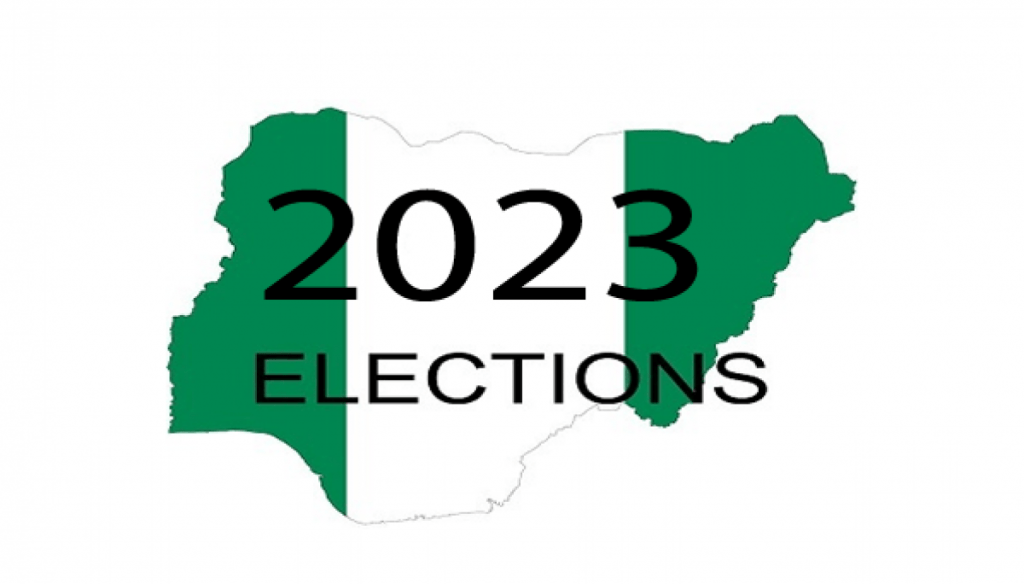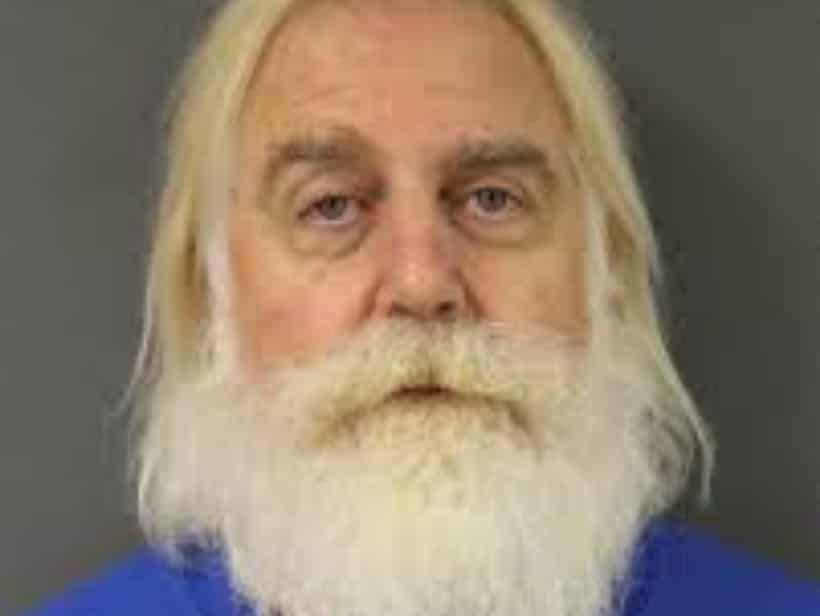Headline
Five Factors That May Affect Outcome Of 2023 Presidential Election

In a few hours from now, 87,209,007 Nigerians will troop to 176, 606 polling units across the country to elect a new President in a presidential election that marks 24 years of uninterrupted democratic experience in Nigeria.
As of February 5, being the deadline for the collection of the Permanent Voter Cards nationwide, 6,259,229 registered voters did not turn up to collect theirs to qualify to vote.
Indeed, Nigerians are looking at electing the next president who will take over on May 29, 2023 upon the completion of the two tenures of President Muhammadu Buhari.
A breakdown of the total eligible voter figure by states by the Independent National Electoral Commission showed that Lagos State has the highest number of collected PVCs with 6,214,970, followed by Kano State with 5,594,193; Kaduna State, 4,164,473, while Ekiti State has the least with 958,052.
There are 18 candidates from different political parties jostling for the position seat but the top four leading candidates are Atiku Abubakar of the Peoples Democratic Party; Bola Tinubu of the All Progressives Congress, Peter Obi of the Labour Party and Rabiu Musa Kwankwaso of the New Nigeria People’s Party.
In this report, The PUNCH critically assesses five major factors that could decide the outcome of tomorrow’s election:
1. Ethnicity and regionalism
From time past, Nigerians have always played the ethnic and regional cards in elections. In fact, it has always been the case of “the person is our son, let him do it”. Not a few Nigerians believe that electing someone from their region or ethnic group will bring massive development to them.
READ ALSO: PHOTOS: Elections: Customers Besiege Banks For Cash In Abeokuta
Since the advent of the Fourth Republic in 1999, there has been an unwritten law that presidential power should rotate every eight years between the North and South, political leaders are agreed that due to the heterogeneous nature of the country, power rotation arrangement had become necessary to address complaints of marginalisation and domination, and to give equal power to ethnic groups.
Zoning has worked well leading to a seamless transfer of power by former president, Olusegun Obasanjo who ruled for eight years, to Musa Yar’ Adua, a Northerner.
This is what brought about the clamour for ‘Emilokan’ (a terminology indicating that it is the time of Yoruba) by the APC’s candidate who publicly said he supported Buhari to emerge as the President.
The South East is not also backing down in their agitation for the presidency because they believe that they have been sidelined well enough since the return of civil rule in 1999.
It is believed this was what led for the call for secession and the call by the apex socio-cultural group, Ohanaeze Ndigbo, that endorsed the Labour Party’s candidate.
2. Religion
Religion is also an important factor that will determine the outcome of Saturday’s election. Since 1999, there has always been a balance in the selection of President and Vice President of all the parties in power.
For instance, if the presidential candidate is a Muslim, he will ensure to choose a Christian as his running mate.
READ ALSO: Rethink Your Choices, Oyedepo Tells Nigerians On Presidential Election
While the North is predominantly Muslim, the South is predominantly Christian.
This balance was however upset when Tinubu, a Yoruba Muslim, chose Kashim Shettima, a Kanuri Muslim and former governor of Borno State, as his running mate.
This action led to widespread condemnation from many Nigerians and Christian bodies.
So, as it stands now, many voters may have to pitch their tent with people of their religious inclination.
3. Possible emergence of third force party
Prior to this dispensation, Nigeria’s political space had been dominated by the PDP until February 2013 when the Action Congress of Nigeria, the Congress for Progressive Change, and the All Nigeria Peoples Party along with a breakaway faction of the All Progressives Grand Alliance formed a coalition and established the APC.
The newly formed coalition defeated the incumbent President, Goodluck Jonathan thus heralding an era of a two-party dominant state. Saturday’s election however could change the narrative with the LP and NNPP looking towards changing the electoral dynamics.
Obi’s supporters popularly called the ‘Obidient’ Movement chiefly constituted by the youths believe that the Labour Party candidate will bring about great change to the country’s political space.
Obi’s candidacy has been endorsed by Ohanaeze Ndigbo, and some influential non-Igbo groups and individuals, including former president Olusegun Obasanjo.
Another candidate is the NNPP’s Kwankwaso, the founder of the Kwankwasiya movement, who is regarded as a grassroots organiser. He is believed to be popular with ordinary people in the North but is thought to lack a strong following in the South.
4. Money
With the persistent cash crunch experienced currently in the country, vote-buying may mitigate the outcome of Saturday’s presidential election.
Nigeria is not yet ripe for a democratic election uninfluenced by vote-trading as it has become an important factor that reinvigorates voters to come out to their polling units.
Recently, some party chairmen of one of the political parties were reported to be clamouring for mobilisation fees from the presidential candidate or they would truncate the elections.
Despite measures to improve the transparency of the electoral system, it is likely that money will remain a big factor in the 2023 elections.
5. Fear of violence
Nigeria’s political history is replete with accounts of violent election conduct and behaviours by actors at election venues.
READ ALSO: Nigeria Decides 2023: NCP Endorses Tinubu Ahead Of Saturday’s Election
The 2023 general election is itself foreshadowed by rising insecurity in many parts of the country. The obvious outcome is that voters could be too scared to come out to exercise their franchise leading to high voter apathy.
In fact, some local governments in Borno and Zamfara states have created super camps for indigenes that have been displaced from their homes in order not to deprive them of their right to vote.
In some other places, some people might not come out because of the fear of being attacked when the result is not going the way of the areas of the dominant party.
Headline
South Korea, Japan Protest China, Russia Aircraft Incursions

South Korea and Japan reacted furiously on Wednesday after Chinese and Russian military aircraft conducted joint patrols around the two countries, with both Seoul and Tokyo scrambling jets.
South Korea said it had protested with representatives of China and Russia, while Japan said it had conveyed its “serious concerns” over national security.
According to Tokyo, two Russian Tu-95 nuclear-capable bombers on Tuesday flew from the Sea of Japan to rendezvous with two Chinese H-6 bombers in the East China Sea, then conducted a joint flight around the country.
The incident comes as Japan is locked in a dispute with China over comments Prime Minister Sanae Takaichi made about Taiwan.
READ ALSO:China Backs Nigeria, Warns Against Foreign Interference
The bombers’ joint flights were “clearly intended as a show of force against our nation, Defence Minister Shinjiro Koizumi wrote on X Wednesday.
Top government spokesman Minoru Kihara said that Tokyo had “conveyed to both China and Russia our serious concerns over our national security through diplomatic channels”.
Seoul said Tuesday the Russian and Chinese warplanes entered its air defence zone and that a complaint had been lodged with the defence attaches of both countries in the South Korean capital.
“Our military will continue to respond actively to the activities of neighbouring countries’ aircraft within the KADIZ in compliance with international law,” said Lee Kwang-suk, director general of the International Policy Bureau at Seoul’s defence ministry, referring to the Korea Air Defence Identification Zone.
READ ALSO:Trial For South Korean Woman Accused Of ‘Suitcase Murders’ Starts Today
South Korea also said it deployed “fighter jets to take tactical measures in preparation for any contingencies” in response to the Chinese and Russian incursion into the KADIZ.
The planes were spotted before they entered the air defence identification zone, defined as a broader area in which countries police aircraft for security reasons but which does not constitute their airspace.
Japan’s defence ministry also scrambled fighter jets to intercept the warplanes.
Beijing later Tuesday confirmed it had organised drills with Russia’s military according to “annual cooperation plans”.
READ ALSO:South Korean Actress Kim Sae-ron Found Dead In Seoul Apartment
Moscow also described it as a routine exercise, saying it lasted eight hours and that some foreign fighter jets followed the Russian and Chinese aircraft.
Since 2019, China and Russia have regularly flown military aircraft into South Korea’s air defence zone without prior notice, citing joint exercises.
In November last year, Seoul scrambled jets as five Chinese and six Russian military planes flew through its air defence zone.
Similar incidents occurred in June and December 2023, and in May and November 2022.
READ ALSO:Russia Insists Ukraine Must Cede Land Or Face Continued Military Push
Meanwhile, Tokyo said Monday it had scrambled jets in response to repeated takeoff and landing exercises involving fighter jets and military helicopters from China’s Liaoning aircraft carrier as it cruised in international waters near Japan.
It also summoned Beijing’s ambassador after military aircraft from the Liaoning locked radar onto Japanese jets, the latest incident in the row ignited by Takaichi’s comments backing Taiwan.
Takaichi suggested last month that Japan would intervene militarily in any Chinese attack on the self-ruled island, which Beijing claims as its own and has not ruled out seizing by force.
AFP
Headline
Thousands Reported To Have Fled DR Congo Fighting As M23 Closes On Key City

Fierce fighting rocked the eastern Democratic Republic of Congo on Tuesday as the Rwanda-backed M23 militia rapidly advanced towards the strategic city of Uvira, with tens of thousands of people fleeing over the nearby border into Burundi, sources said.
The armed group and its Rwandan allies were just a few kilometres (miles) north of Uvira, security and military sources told AFP.
The renewed violence undermined a peace agreement brokered by US President Donald Trump that Kinshasa and Kigali signed less than a week ago, on December 4.
Trump had boasted that the Rwanda-DRC conflict was one of eight he has ended since returning to power in America in January.
READ ALSO:Ambassadorial Nominees: Ndume Asks Tinubu To Withdraw List
With the new fighting, more than 30,000 people have fled the area around Uvira for Burundi in the space of a week, a UN source and a Burundian administrative source told AFP.
The Burundian source told AFP on condition of anonymity he had recorded more than 8,000 daily arrivals over the past two days, and 30,000 arrivals in one week. A source in the UN refugee agency confirmed the figure.
The Rwanda-backed M23 offensive comes nearly a year after the group seized control of Goma and Bukavu, the two largest cities in eastern DRC, a strategic region rich in natural resources and plagued by conflict for 30 years.
Local people described a state of growing panic as bombardments struck the hills above Uvira, a city of several hundred thousand residents.
“Three bombs have just exploded in the hills. It’s every man for himself,” said one resident reached by telephone.
READ ALSO:South Africa Beat DR Congo In shootout To Finish Third At AFCON
“We are all under the beds in Uvira — that’s the reality,” another resident said, while a representative of civil society who would not give their name described fighting on the city’s outskirts.
Fighting was also reported in Runingo, another small locality some 20 kilometres (12 miles) from Uvira, as the M23 and the Rwandan army closed in.
Burundi views the prospect of Uvira falling to Rwanda-backed forces as an existential threat, given that it sits across Lake Tanganyika from Burundi’s economic capital Bujumbura.
The city is the main sizeable locality in the area yet to fall to the M23 and its capture would essentially cut off the zone from DRC control.
READ ALSO:Stampede Kills 37 During Army Recruitment In Congo Capital
Burundi deployed about 10,000 soldiers to eastern DRC in October 2023 as part of a military cooperation agreement, and security sources say reinforcements have since taken that presence to around 18,000 men.
The M23 and Rwandan forces launched their Uvira offensive on December 1.
Rich in natural resources, eastern DRC has been choked by successive conflicts for around three decades.
Violence in the region intensified early this year when M23 fighters seized the key eastern city of Goma in January, followed by Bukavu, capital of South Kivu province, a few weeks later.
– Regional risk –
The peace deal meant to quell the fighting was signed last Thursday in Washington by Congolese President Felix Tshisekedi and his Rwandan counterpart Paul Kagame, with Trump — who called it a “miracle” deal — also putting his signature to it.
READ ALSO:FULL LIST: US To Review Green Cards From 19 ‘Countries Of Concern’ After Washington Shooting
The agreement includes an economic component intended to secure US supplies of critical minerals present in the region, as America seeks to challenge China’s dominance in the sector.
But even on the day of the signing, intense fighting took place in South Kivu, where Uvira is located, which included the bombing of houses and schools.
Witnesses and military sources in Uvira said that Congolese soldiers fleeing the fighting had arrived in the city overnight Monday and shops were looted at dawn.
Several hundred Congolese and Burundian soldiers had already fled to Burundi on Monday, according to military sources, since the M23 fighters embarked on their latest offensive from Kamanyola, some 70 kilometres north of Uvira.
Since the M23’s lightning offensive early this year, the front had largely stabilised over the past nine months.
Burundian President Evariste Ndayishimiye warned in February there was a danger of the conflict escalating into a broader regional war, a fear echoed by the United Nations.
Headline
‘Santa Claus’ Arrested For Possessing, Distributing Child Sexual Abuse Material

A 64-year-old man from Hamilton Township has been arrested in the United States after investigators linked him to the possession and distribution of child sexual abuse material.
The suspect, identified as Mark Paulino, had been working as a “Santa for hire” at holiday events, a role that placed him in repeated contact with children.
Mercer County officials said the investigation began on 4 December when detectives were alerted to suspicious online activity involving the uploading of child pornography from a residence in Hamilton Township. The probe quickly identified Paulino, a retired elementary school teacher, as the person involved.
READ ALSO:Nigerian Ringleader Of Nationwide Bank Fraud, Money Laundering Jailed In US, Says FBI
Police stated that Paulino had presented himself online as a retired teacher and had recently performed as Santa Claus for photographs and private, corporate, and organisational events. “Because this role involved direct, repeated contact with children, detectives worked around the clock to secure a search warrant,” authorities explained.
The warrant was executed on 5 December, during which police seized multiple items regarded as evidentiary. Paulino was taken into custody without incident and charged with possession and distribution of child sexual abuse materials, as well as endangering the welfare of a child.
Prosecutors have filed a motion to detain him pending trial. The investigation remains ongoing, and authorities have urged members of the public with relevant information to come forward.

 News5 days ago
News5 days agoSoyinka Decries Seyi Tinubu’s ‘Excessive’ Security Escort

 Metro5 days ago
Metro5 days agoEdo Assembly Declares Okpebholo’s Projects Unprecedented

 News5 days ago
News5 days agoWorld Human Rights Day: CSO Tasks Govt On Protection Of Lives

 News5 days ago
News5 days agoHuman Rights Day: Stakeholders Call For More Campaigns Against GBV

 News5 days ago
News5 days agoNAF Releases 2025 Recruitment Aptitude Test List

 News5 days ago
News5 days agoOPINION: Fubara, Adeleke And The Survival Dance

 News5 days ago
News5 days agoOut-of-school: Group To Enroll Adolescent Mothers In Bauchi

 News2 hours ago
News2 hours agoEdo Assembly Charges Contractor Handling Ekekhuan Road To Accelerate Work


























